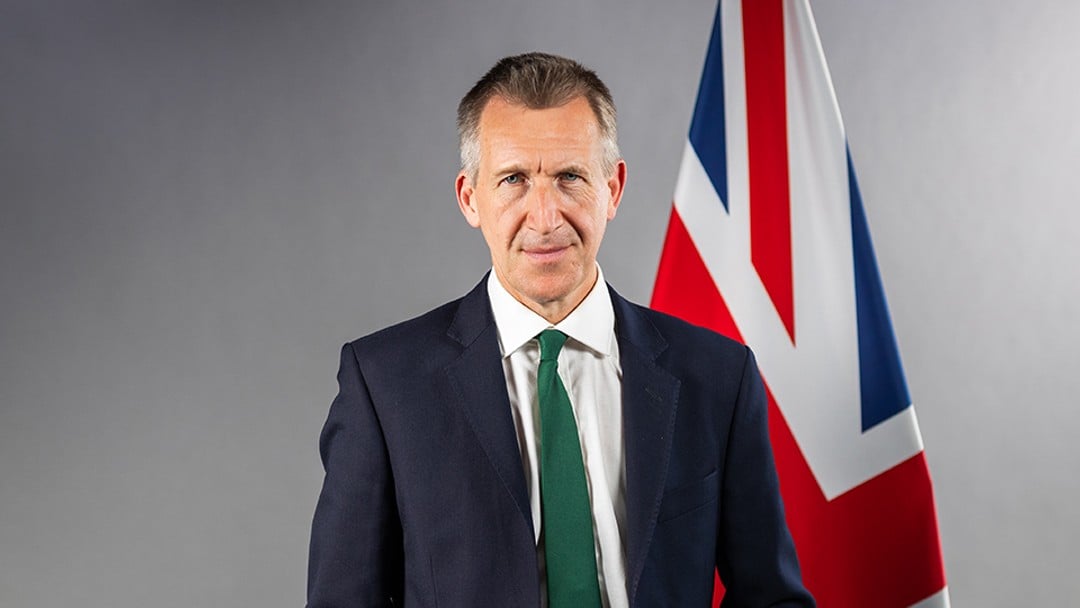Working with partners to defeat economic crime

By Law News
Government strengthens commitment to combat economic crime through collaboration, data sharing, and new strategies
Tackling Economic Crime as a National Priority
Dan Jarvis MBE MP, Security Minister, addressed the UK Finance Economic Crime Congress, outlining the government's commitment to detecting, disrupting, and defeating economic crime. In his speech, Jarvis highlighted the collaborative approach the government is pursuing with the private sector, law enforcement, and technology companies to address the multifaceted threat posed by economic crime. He emphasised that tackling these crimes is crucial for maintaining national security, economic growth, and public trust.
The Scale and Impact of Economic Crime
Jarvis began by acknowledging the scale and destructive nature of economic crime, noting that fraud alone accounts for approximately 39% of all surveyed crime. He pointed out that around one in 16 adults were victims of fraud in the year ending June 2024. Economic crime's impact is not limited to financial losses; it also leaves significant psychological damage on victims.
He stressed that economic crime presents a dual threat to both national security and economic prosperity. Money laundering, for instance, fuels organised crime groups that bring violence to communities, corrupt legitimate businesses, and pose threats to public safety. He said, “Money laundering directly enables the organised crime groups which bring such misery to our communities, drawing young people into crime and fuelling violence on our streets.”
Jarvis pointed out that these criminal activities do not only weaken the UK internally but also have international implications. The war in Ukraine highlighted how illicit finance operations support state actors like Putin’s regime, linking economic crime to national security risks and geopolitical instability.
A Collaborative Approach Across Sectors
Recognising the scale of the challenge, the government is advocating a public-private partnership to tackle economic crime, bringing together the financial sector, technology companies, and law enforcement agencies. Jarvis affirmed that banks have already made significant investments to prevent fraud, but combating economic crime requires more than the efforts of the banking sector alone.
He highlighted the importance of data sharing across the public and private sectors, suggesting that better integration and cooperation could help detect and disrupt criminal activities more effectively. The data fusion pilot is one such initiative that has shown the potential of sharing data across the system to combat organised crime.
The Security Minister announced a collaboration with UK Finance to develop a joint economic crime and data strategy, aimed at creating a unified data system. This initiative is intended to improve responsiveness to technological developments and to criminal activities’ evolving methods.
New Initiatives and Strategies
Jarvis outlined several initiatives the government is introducing to strengthen its fight against economic crime:
- A New UK Anti-Corruption Strategy
- This strategy aims to address vulnerabilities to corruption both domestically and internationally. The government intends to make it harder for corrupt actors to move funds, improve global resilience against corruption, and build stronger international partnerships.
- The Domestic Corruption Unit
- In a significant step, the government is launching a pilot Domestic Corruption Unit in collaboration with the Home Office and the City of London Police. This unit will enhance intelligence gathering, proactive investigations, and collaboration across national agencies and local forces. It will provide a dedicated response in areas where previous capacity was lacking.
- Support for Financial and Technological Sectors
- Following a call to action from the Chancellor of the Exchequer, the government is urging tech and telecommunications companies to enhance efforts against online fraud. The Online Safety Act and continuous collaboration between government and industry aim to strengthen protections for consumers.
Economic Crime’s Broader Impact on Society
Jarvis highlighted that economic crime goes beyond financial loss. It damages families, communities, and legitimate businesses while undermining public institutions and the rule of law. A robust response to economic crime is critical for maintaining investment confidence, as a stable legal and institutional framework attracts investors.
He emphasised that economic crime also impacts community safety and trust, with organised crime groups fostering environments of violence and instability. Addressing these issues is part of the government’s commitment to reducing crime, fostering economic growth, and ensuring the safety and integrity of the public and businesses.
A United Front: Government and Industry Cooperation
Jarvis concluded his speech with a strong message about unity and cooperation. He insisted that combating economic crime requires a system-wide response that includes close cooperation between the government, law enforcement, financial institutions, technology companies, and wider industry partners. This united front is not just about protecting financial transactions but also about preserving the UK’s reputation for strong institutions, economic stability, and rule of law.
He said, “This body demands a united front with the public and the private sectors working shoulder to shoulder together. I know that we will commit to delivering the justice, security, and integrity that the people of our country rightly deserve.”
Dan Jarvis’ speech highlighted the government's commitment to combating economic crime as a matter of national security, public safety, and economic prosperity. The proposed initiatives, strengthened collaboration, and strategic plans show a clear commitment to leveraging public-private partnerships, data sharing, and proactive law enforcement to dismantle economic criminal networks. This effort aims not only to safeguard financial transactions but also to protect communities, uphold public trust, and maintain the UK’s position as a secure and reliable environment for global investment.

